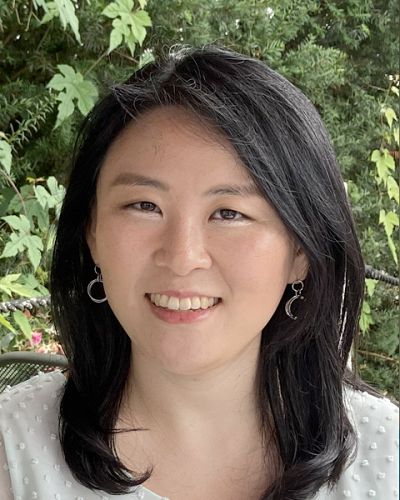BA in Korean Studies
The Korean Studies program provides students with a solid foundation in Korean language
skills and knowledge of Korea's history, literature, culture, and religions. The program
is based on the premise that both contemporary and historic understandings of Korea,
its interrelations with larger East Asia and its global importance today cannot be
fully grasped without a deep understanding of its language, history, social systems
and culture.
Hence, the program aims to provide students with not only language training, but also
a solid understanding of how Korean societies and people actually functioned and interacted
with other cultures in both the pre-modern and contemporary periods. The wide range
of courses is designed to introduce various aspects of Korean Studies and provide
students with the knowledge necessary for business, professional or academic endeavors.
Requirements
-
Major Requirements
The Korean Studies major requirement consists of 11 courses.
Language Courses
Students are required to successfully complete the following four language courses:
-
KOR 203 Intermediate Korean I
-
KOR 204 Intermediate Korean II
-
KOR 305 Advanced Korean I
-
KOR 306 Advanced Korean II
Note: KOR 101 (Elementary Korean I) and KOR 102 (Elementary Korean II) provide the
basic linguistic knowledge and skills required to begin the major but do not count
towards the major. After consultation and proficiency test assessment administered
by Korean Program faculty, students who already demonstrate competence in Korean at
any of the required levels may waive part or all of the language requirements. Waived
Korean language courses will not count toward the major and must be replaced with
other Korean Studies courses to bring the total number of courses to eleven. A letter
grade of C or better is necessary for a course to count toward the Korean Studies
major.
Elective Courses
In addition to the required language courses, students must choose:
In addition:
-
Two of the courses have to be at the 400 level, with at least one being in Korean
Studies.
-
At least two additional elective courses must be at the 300 or 400 level.
-
At least six courses must be taken at Binghamton University.
-
No more than one course may be an independent study.
-
No more than one course may be taken Pass/Fail.
- No language course may be taken Pass/Fail.
-
A letter grade of C or better is necessary for a course to count toward the major.
-
Minor Requirements
The minor in Korean Studies consists of six courses consisting of three language courses
and three Korean Studies elective courses. At least three of these six courses must
be at the 300 or 400 level.
The three required language courses are:
-
KOR 203 Intermediate Korean I
-
KOR 204 Intermediate Korean II
-
KOR 305 Advanced Korean I
Note: KOR 101 (Elementary Korean I) and KOR 102 (Elementary Korean II) provide the
basic linguistic knowledge and skills required to begin the minor but do not count
towards the minor. After consultation and proficiency test assessment administered
by Korean Program faculty, students who demonstrate proficiency in Korean at any of
the required levels may waive part or all of the language requirements. Waived Korean
language courses will not count toward the minor and must be replaced with other Korean
Studies courses to bring the total number of courses up to six.
In addition:
- No more than one course may be an independent study
- No more than one course may be taken Pass/Fail.
- No language course may be taken Pass/Fail
- At least four courses must be taken at Binghamton University.
- A letter grade of C or better is necessary for a course to count toward the minor.
Courses for Korean Studies Majors & Minors
Faculty Members of Korean Studies
Sungdai Cho
Professor, Korean and Linguistics; Graduate Director
Department of Asian and Asian American Studies
Research Interests
- Syntax and Morphology
- Passive; Causative; Sluicing; Honorifics
- Language Pedagogy
- National Standards
- Assessment
Kyung-Ah Kim
Lecturer
Department of Asian and Asian American Studies
Research Interests
- Teaching Korean as a Second/Foreign Language
- Computer-Assisted Language Learning (CALL)
- Second Language Acquisition
- Korean Linguistics
Sonja M. Kim
Director; Associate Professor, Department Chair
Institute for Asia and Asian Diasporas; Department of Asian and Asian American Studies
Research Interests
- Korea and Comparative East Asia
- Medicine
- Health
- Gender
- Race and Class
- Education and Welfare
Young-il Kim
Lecturer
Department of Asian and Asian American Studies
Research Interests
- Korean Linguistics (Syntax and Morphology)
- Linguistic Typology
- Teaching Korean as a Foreign Language
- Error Analysis and Remedial Teaching
Eunjin Park
Lecturer
Department of Asian and Asian American Studies
Research Interests
- Teaching Korean as a foreign language
- Heritage language learning
- Language socialization
- Multilingualism and multiculturalism
Michael J. Pettid
Professor of Korean Studies
Department of Asian and Asian American Studies
Research Interests
- Premodern Korea (history; literature; culture; religions)
- Korean folklore and shamanism
- Korean Confucianism
- Daily life in premodern Korea (diet; housing; clothing; educational institutions; entertainment)





